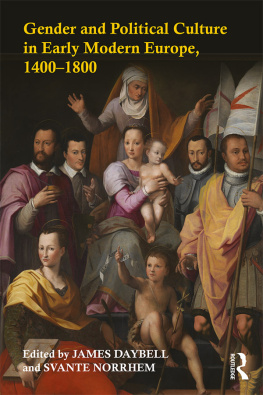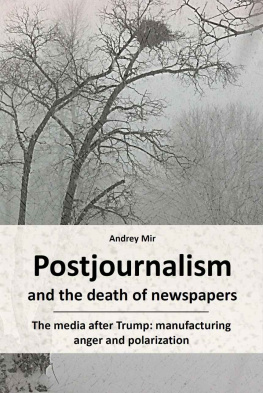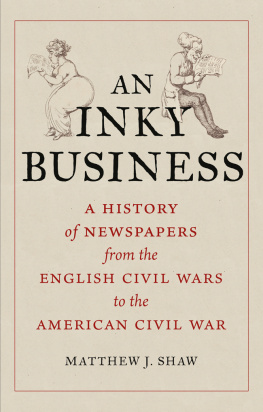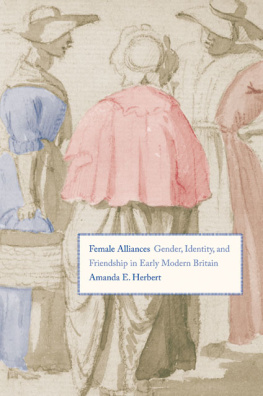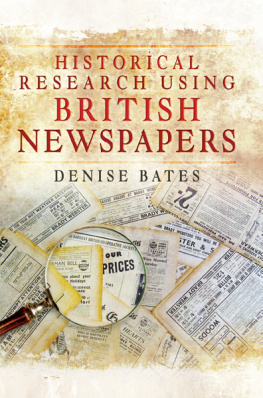NEWS, NEWSPAPERS, AND SOCIETY IN EARLY MODERN BRITAIN
BOOKS OF RELATED INTEREST
THE EMERGENCE OF QUAKER WRITING
Dissenting Literature in Seventeenth-Century England
Edited by Thomas N. Corns and David Loewenstein
TELLING PEOPLE WHAT TO THINK
Early Eighteenth-Century Periodicals from The Review to The Rambler
Edited by J.A. Downie and Thomas N. Corns
PAMPHLET WARS
Prose in the English Revolution
Edited by James Holstun
AUTOBIOGRAPHY AND QUESTIONS OF GENDER
Edited by Shirley Neuman
EDWARD CARPENTER AND LATE VICTORIAN RADICALISM
Edited by Tony Brown
COLERIDGE AND THE ARMOURY OF THE HUMAN MIND
Essays on his Prose Writing
Edited by Peter J. Kitson and Thomas N. Corns
First published in 1999 in Great Britain by
FRANK CASS PUBLISHERS
Crown House, 47 Chase Side, Southgate, London N14 5BP
and in the United States of America by
FRANK CASS PUBLISHERS
c/o ISBS, 5824 N.E. Hassalo Street, Portland, Oregon 972133644
Website: www.frankcass.com
Copyright 1999 Frank Cass & Co. Ltd
Reprinted 2002
British Library Cataloguing in Publication Data
News, newspapers, and society in early modern Britain
1. Newspapers - Great Britain - History - 17th century
2. Newspapers - Great Britain - History - 18th century
3. Press - Great Britain - Influence - History - 17th century
4. Press - Great Britain - Influence - History - 18th century
5. Newspapers - Social aspects - Great Britain
I. Raymond, Joad
070.17094109032
ISBN 0 7146 4944 9 (h/back)
ISBN 0 7146 8003 6 (p/back)
eISBN 978-1-13457-206-9
Library of Congress Cataloging-in-Publication Data
News, newspapers, and society in early modern Britain / edited by Joad Raymond
p. cm.
Includes index.
ISBN 0-7146-4944-9. ISBN 0-71468003-6 (pbk.)
1. Press - Great Britain - History - 17th century.
2. Press - Great Britain - History - 18th century.
3. Journalism - Social aspects - Great Britain.
I. Raymond, Joad.
PN5115.N49 1999
072.09032 - dc21
98-45230
CIP
This group of studies first appeared in a Special Issue of Prose Studies, Vol.21, No.2 (August 1998), [News, Newspapers, and Society in Early Modern Britain].
All rights reserved. No part of this publication may be reproduced, stored in a retrieval system, or transmitted in any form, or by any means, electronic, mechanical, photocopying, recording or otherwise without the prior written permission of the publisher of this book.
Printed in Great Britain by Antony Rowe Ltd.
JOAD RAYMOND
In 1766, the historian Thomas Birch, a collaborator in Hardwickes literary circle, bequeathed, among his other papers, both manuscript and printed copies of The English Mercurie to the British Museum. He left no comment on their nature or provenance. The potential of this contrivance to deceive lay dormant until a Scottish antiquary named George Chalmers stumbled across the forgeries in the 1790s. Chalmers, who was conducting research for a biography of Thomas Ruddiman, seized upon the supposed early newspapers as evidence of Englands prodigious contribution to the craft of news.
Chalmers The Life of Thomas Ruddiman (1794) is a curious mixture of biography and cultural history, combining a sensitivity to the relationship between a life, scholarship and political change with a Jacobites resistance to the transformations in ideology and intellectual debate that occurred in the mid-eighteenth century. Ruddiman, a scholar and keeper of the library of the Faculty of Advocates at Edinburgh, had worked for some years as a printer then proprietor of the Caledonian Mercury, an Edinburgh newspaper founded in 1720 and regarded by Chalmers with some pride as an emblem of Scottish civilization. His versatility gave Chalmers the opportunity for numerous digressions of a philological and antiquarian bent, none more impressive and surprising than a discussion of early newspapers:
The origin of news-papers, those pleasant vehicles of instruction, those entertaining companions of our mornings, has not yet been
Chalmers offers a narrative account of the emergence of newspapers in England and Scotland; and he appends a series of substantial bibliographies of English and Scottish newspapers of the seventeenth and eighteenth centuries. He notes the appearance of Mercurius Gallobelgicus (which he dates incorrectly to 1605, rather than 1594), and claims that it is not a newspaper as it is both too large and too infrequent. And the 1588 English Mercurie enables him to speak with pride:
After inquiring, in various countries, for the origin of news-papers, I had the satisfaction to find what I sought for in England. It may gratify our national pride to be told, that mankind are indebted to the wisdom of Elizabeth, and the prudence of Burleigh, for the first newspaper....
Yet, we are told, that posts gave rise to weekly news-papers, which are likewise a French invention ... the English Mercurie will remain an incontestible proof of the existence of a printed news-paper in England, in an epoch, when no other nation can boast a vehicle of news of a similar kind.
Chalmers paradoxically acknowledges that his 1588 newspaper is occasional rather than fully periodical, published when the Elizabethan Secretary of State wished, either to inform, or to terrify the people. Yet for him it is proof that the English invented the first printed newspaper, the guardian of the peoples democratic liberties.
Like many eighteenth-century Scottish authors, Chalmers is a cultural amphibian, moving freely (if not without discomfort) between habitats left divided by the 1707 Act of Union.
The connection between newspapers, democracy and national self-esteem (already present in Macaulays designation of the news press as The Fourth Estate) was to be further elaborated in nineteenth-century newspaper historiography. Unfortunately, the claim to precedence had to be conceded to others. Chalmers own discovery, and the basis for his pride, was soon debunked. A glance at the typography, orthography, paper, and the hand in which the manuscripts were written was enough to suggest to a librarian at the British Museum that these documents were not as venerable as they claimed. In A letter to Antonio Panizzi ... on the reputed earliest printed newspaper: the English Mercurie 1588 (1839), Thomas Watts demonstrated with considerable care that the Mercurie was an eighteenth-century creation. He subsequently laid the crime at Lord Hardwickes door. News of the imposture rapidly spread, and DIsraeli renounced Chalmers work in a later edition, though others continued to repeat the mistake. Surprisingly, one of the forgeries was silently reprinted in the nineteenth century.
Within a few decades Victorian writers had begun to think of the newspaper as something that merited a scholarly history; and the mercurial fraud troubled their conscience. They worried at the dangers of error and ruminated on the immorality of deceiving posterity. The cozening of Chalmers became the founding moment of their scholarship. It inspired readers, he suggested, with distrust. Perhaps he was unduly pessimistic, however, as the forgery led to epistemological anxiety, which led to laborious rummaging in archives and the painstaking detailing of the story of the periodical press. Nor did the deception deter scholars entirely from negotiating tendentious evidence: one of the characteristics of Victorian histories of the early newspaper is the extensive deployment of literary evidence, including explicitly hostile sources. They recognized that Jonsons satirical presentation of a news office in


